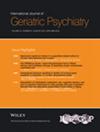Reliability and Validity of Four Step Tests in Older Adults With Dementia
Abstract
Objectives
To determine the test–retest and inter-rater reliability, concurrent and discriminative validity of the Four Square Step Test (FSST), the Choice Stepping Reaction Time Test (CSRTT), the Maximum Step Length Test (MSLT), and the Alternate Step Test (AST) in older adults with dementia.
Methods
Thirty-seven older adults with dementia who could walk independently for at least 10 m were recruited at community centers and day care centers for older adults. The participants completed the step tests conducted by two independent raters on three separate testing occasions within 3 weeks. In addition, the physical and cognitive function of the participants were evaluated at baseline.
Results
The FSST, CSRTT, and MSLT showed good-to-excellent test–retest reliability (intraclass correlation coefficient [ICC] = 0.83–0.91), and the AST exhibited fair test–retest reliability (ICC = 0.70). All the step tests showed good-to-excellent inter-rater reliability (ICC = 0.75–0.94). The step tests had moderate-to-strong correlations with various physical and cognitive measures (Pearson correlation coefficients = 0.34–0.72). The MSLT side step and AST could differentiate between individuals who did and did not use a walking stick to ambulate (p ≤ 0.046). The FSST, CSRTT, and AST could differentiate between individuals with and without a major neurocognitive impairment (p ≤ 0.005).
Conclusion
The FSST, CSRTT, and MSLT were reliable and valid for examining the stepping performance of older adults with dementia. Clinicians can use these tests to evaluate the physical and cognitive function of this population and identify those with significant cognitive impairment.
Trial Registration
Clinical Trial Registration number: NCT04296123

 求助内容:
求助内容: 应助结果提醒方式:
应助结果提醒方式:


